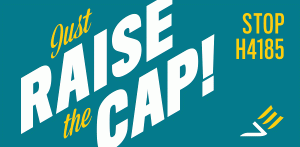 With Net Metering caps soon to be reached and the Solar Task Force far behind schedule, two solar bills have come forward to increase capacity now. The first An Act Relative to Net Metering (S869 and H2050), filed by Senator Anthony Petrucelli and Representative Frank Smizik will increase capacity a mere 2% for the public sector, 1% for the private sector, and is endorsed by the so-called grassroots “Mass Solar Coalition” (click here) which is made up mostly of former sponsors of H4185 (legislation MASOA helped defeat last year). Sadly we feel this proposed legislation falls short of its intent of allowing enough time to craft the best possible new future solar policies, so MASOA does not endorse this legislation except as a last resort.
With Net Metering caps soon to be reached and the Solar Task Force far behind schedule, two solar bills have come forward to increase capacity now. The first An Act Relative to Net Metering (S869 and H2050), filed by Senator Anthony Petrucelli and Representative Frank Smizik will increase capacity a mere 2% for the public sector, 1% for the private sector, and is endorsed by the so-called grassroots “Mass Solar Coalition” (click here) which is made up mostly of former sponsors of H4185 (legislation MASOA helped defeat last year). Sadly we feel this proposed legislation falls short of its intent of allowing enough time to craft the best possible new future solar policies, so MASOA does not endorse this legislation except as a last resort.
The far better solution comes from Thomas Calter (Plymouth) and Paul Mark (Berkshire) H2297 (click here) in the House, and James Eldridge (Worcester) S1616 in the Senate (identical bills). The first of five sections calls for the state to produce 20% of electricity with renewables by end of 2025. Section two would increase the solar Net Meter Cap to 1600 megawatts (Gov. Patrick’s goal for 2020). Section four introduces the idea of developing an energy storage program. “This program shall be designed to enable cost effective energy storage systems that reduce greenhouse gas emissions, reduce demand for peak electrical generation, defer or substitute for an investment in distribution or transmission assets, provide back-up or emergency power, ancillary services, or improve the reliable operation of the distribution grid.” Section five further supports Community Shared Solar Systems by giving individual owners the same tax and net metering benefits as if the solar installation was on their own property, provided the individual owner is limited to 25 kW and/or 125% of their annual electric use.
While far from a comprehensive solution to the future of solar and renewable energy growth, MASOA strongly supports these bills as they address for now the Net Metering capacity issue that has been the leverage used by utilities to try to force solar development into accepting a carrot along with by a very large stick (as was done with H4185 last July). MASOA encourages you to ask your senator/representatives to sponsor and support H2297 & S1616.
Governor Baker Presents Balanced Energy Plan?
We have not heard much about how the Baker Administration will approach the state energy issues until a Boston Globe article (click here) from Jan. 27th. Like Obama, Baker has an all-energy-sources approach that focuses on affordability first and environmental consequences second. The plan as outlined would be to increase fracked gas supply pipelines “while creating the space for renewables to thrive.” No doubt we will learn more about this plan and how the billions of dollars of new gas pipelines will be subsidized as the new positions in the Dept. of Energy Resources (DOER) are filled in the coming few months.
Lastly, please consider joining MASOA (click here) … watch this website for more solar policy news.








